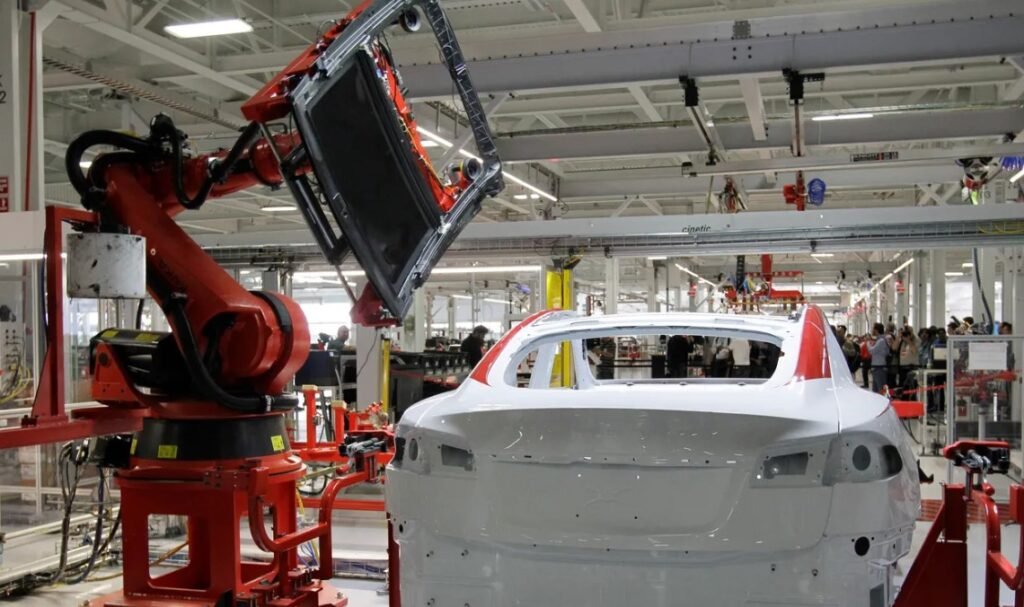A Tesla engineer was attacked by a robot at the company’s factory in Fremont, California, on Tuesday, leaving a trail of blood on the factory floor, according to a report by NDTV. The engineer, whose name has not been disclosed, was taken to a hospital with serious injuries.
The incident occurred around 10:30 a.m. local time, when a robot that was supposed to move car parts malfunctioned and went out of control. The robot collided with the engineer, who was working nearby, and knocked him down. The engineer suffered multiple cuts and bruises, and lost a lot of blood, the report said.

The robot was part of Tesla’s automated production system, which uses hundreds of robots to assemble electric vehicles. The company has been investing heavily in automation, as it aims to increase its production capacity and efficiency. Tesla CEO Elon Musk has also announced plans to develop a humanoid robot, called Tesla Bot, that can perform various tasks.
How did Tesla respond to the accident?
Tesla has not issued an official statement about the accident, but sources told NDTV that the company is investigating the cause of the robot’s malfunction. The sources also said that Tesla has suspended the operation of the robot involved in the accident, and has checked the safety of other robots in the factory.
Tesla has faced several lawsuits and complaints from workers and regulators over its factory conditions and safety practices. In 2018, a former Tesla employee sued the company, alleging that he was fired after reporting unsafe and illegal activities at the factory. In 2019, the Occupational Safety and Health Administration (OSHA) fined Tesla for violating workplace safety standards, after a worker was killed by a machine at the factory.
What are the implications of the accident for Tesla and the industry?
The accident raises questions about the reliability and security of Tesla’s automation technology, and the potential risks of using robots in manufacturing and other sectors. Some experts have warned that robots could pose a threat to human workers, especially if they are not properly programmed, monitored, or regulated.
However, some analysts have also argued that robots could enhance human productivity and creativity, and that accidents are inevitable in any complex system. They have urged Tesla and other companies to learn from the accident, and to improve their robot design, testing, and maintenance.
The accident also highlights the need for ethical and legal frameworks to govern the use and development of robots, especially as they become more intelligent and autonomous. Some countries, such as the European Union and Japan, have proposed or adopted guidelines and principles for responsible robotics, while others, such as the United States and China, have lagged behind.
